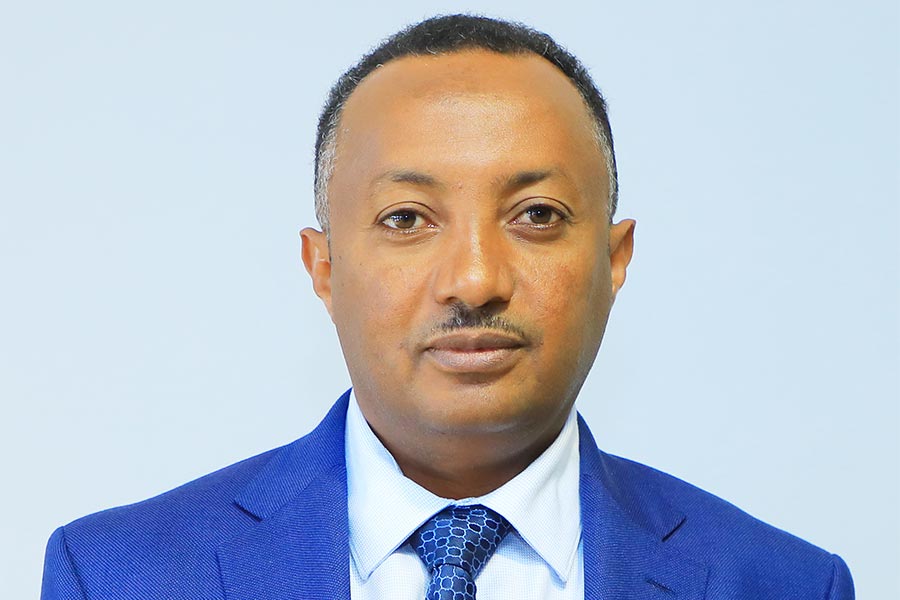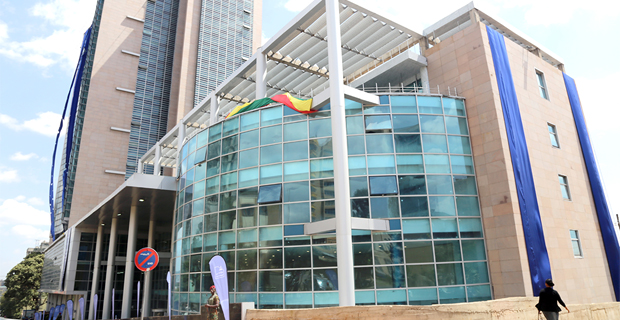
Dashen Bank, one of the pioneers of private commercial banks, overhauled its organisational structure by broadening its top level management team, as of January 1, 2019.
The new restructuring brings seven chief and two deputy-chief officers operating under the president. The nine chief offices are divided into three: front, middle and back office. In the former structure, four vice presidents served under the president.
The reorganisation has also increased the number of directors to 25, adding five new director posts from the former structure.
“The change in structure is necessitated by the paradigm shift made in the Bank's strategy,” said Mulugeta Alebachew, marketing & corporate communications manager of Dashen, which netted 904.3 million Br in profit last financial year.
Last year, Dashen hired KPMG East Africa to formulate a management strategy for the Bank. Along with formulating a decade-long strategic road map, KPMG developed a one-year operational plan, a five-year strategic plan and designed an organisational structure, as well as supporting the Bank in the implementation of the performance management system.
Dashen Bank, one of the pioneers of private commercial banks, overhauled its organisational structure by broadening its top level management team, as of January 1, 2019.
The Bank has set aside 40 million Br for the design and implementation of the strategic plan, which took about 10 months to be formulated.
Adopting the new organisational structure has elevated Dashen to become the third largest private bank behind Awash and the Bank of Abyssinia. The state giant, Commercial Bank of Ethiopia, has adopted the same organisational structure.
Bank of Abyssinia pioneered the practice in 2015 by hiring Deloitte Consulting Plc, and then Awash followed the next year awarding KPMG a contract to develop a new strategic management plan. United and Nib banks have already hired Deloitte and KPMG, respectively, to get their management strategies in line with the other banks.
Aligning with the new structure, Dashen has appointed executives for various posts at the beginning of this month. Three out of the four vice presidents of the bank have already been assigned as chief officers, while Samuel Adane, VP for Marketing & business development, has been appointed as an adviser to the CEO.
Yared Mesfin, Chief Corporate Banking Officer; Henok Kebede, Chief Shared Service & Central Processing Officer; and Shimeles Legesse, Chief Information Officer, maintained their current posts.
Four directors were promoted to chief officers including Tibebu Solomon, Chief Retail & Banking Banking Officer; Yihenalem Aknaw, Chief Transformation & Customer Experience Officer; Freegzi Berhane, Chief Officer for Corporate Services; and Alemneh Abebe, Chief Officer of Finance. The newly assigned officers will remain as acting chiefs until their appointment is approved by the National Bank of Ethiopia.
Two more directors, Mesfin Bezu and Eyerusalem Wagaw, became deputy chief officers in charge of Interest-Free Banking and Human Resource Development, respectively.
In assigning the nine top-level executives, the Bank did not bring an expert from the industry. All of them were promoted from within the bank, which operates with 8,950 employees and a one billion Birr budget for employee salaries and benefits.
A management consultant has applauded the shift being observed in the banking industry and the fact that the institutions are giving attention to organisational structures.
“In organising the management team," said the consultant, "the Bank should focus highly on making sure whether the organisational structure can carry on and take the Bank to the targeted strategic goal."
Currently, the management of the Bank is working on the reshuffling of directors and the corresponding salary adjustments, which are expected to become publicised this week.
"Job evaluation results for the employees have already been submitted to the board and management for approval," a person close to the case told Fortune.
Dashen has also held training for employees at the United Nations Economic Commission for Africa led by its senior management members and by outsourcing to other training companies.
PUBLISHED ON
Jan 19,2019 [ VOL
19 , NO
977]

Advertorials | Nov 04,2025

Radar | Jun 07,2025

Radar | Feb 17,2024

Radar | Jan 03,2021

Radar | Sep 03,2022

Radar | Aug 11,2024

Fortune News | Sep 08,2019

Radar | Jan 16,2021

Commentaries | Apr 26,2019

Fortune News | Aug 24,2019

Dec 22 , 2024 . By TIZITA SHEWAFERAW
Charged with transforming colossal state-owned enterprises into modern and competitiv...

Aug 18 , 2024 . By AKSAH ITALO
Although predictable Yonas Zerihun's job in the ride-hailing service is not immune to...

Jul 28 , 2024 . By TIZITA SHEWAFERAW
Unhabitual, perhaps too many, Samuel Gebreyohannes, 38, used to occasionally enjoy a couple of beers at breakfast. However, he recently swit...

Jul 13 , 2024 . By AKSAH ITALO
Investors who rely on tractors, trucks, and field vehicles for commuting, transporting commodities, and f...

Nov 1 , 2025
The National Bank of Ethiopia (NBE) issued a statement two weeks ago that appeared to...

Oct 25 , 2025
The regulatory machinery is on overdrive. In only two years, no fewer than 35 new pro...

Oct 18 , 2025
The political establishment, notably the ruling party and its top brass, has become p...

Oct 11 , 2025
Ladislas Farago, a roving Associated Press (AP) correspondent, arrived in Ethiopia in...